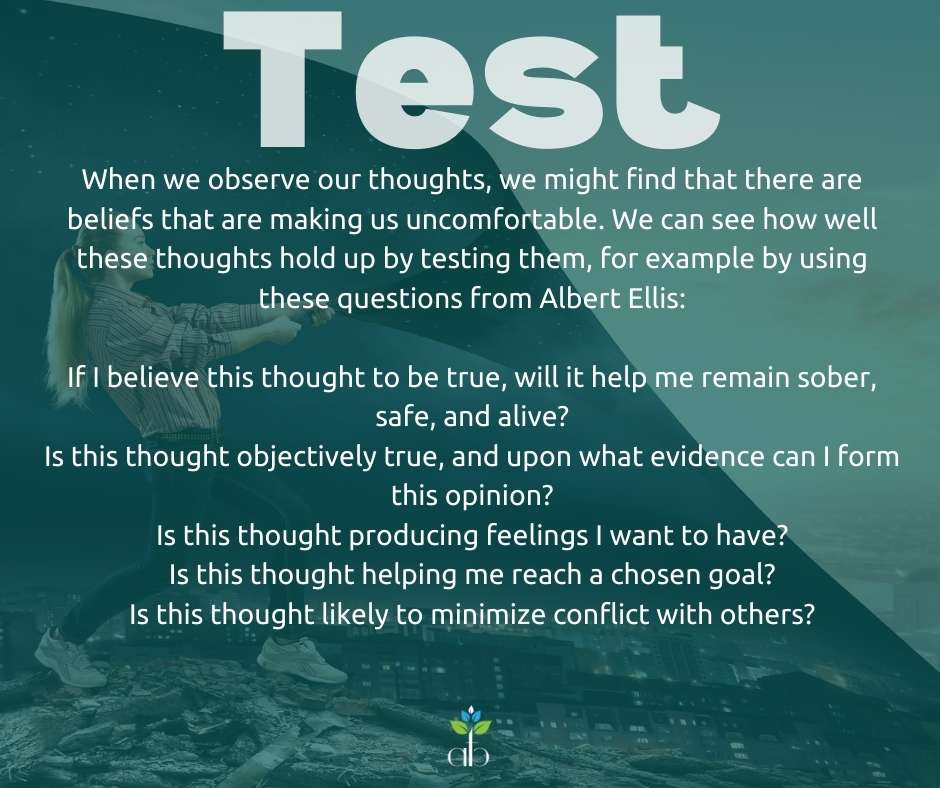Episode 326
Reality Testing

Reality testing and gaslighting are two sides of the same coin. Gaslighting is applying pressure to someone’s concept of reality in order to limit them or manipulate them, and reality testing is applying similar pressure in order to help them form a concept of the word that is more accurate, and more empowering.
Gaslighting is normally phrased as a statement, such as “No, I arrived at 6. You’re imagining things.” Reality testing is normally phrased as a question, such as “Is this thought objectively true? What is the evidence for it?”
We might have the concept that doubting ourselves means we have a weak sense of reality. Sometimes this is true, however when we observe our thoughts and question their validity and their effects, we are actually strengthening our reality.
A strong sense of reality must also mean a flexible sense of reality – an ability to adapt to new information.
Hosts & Guests
Kurt Robinson
Transcript
I was just thinking about reality testing.
This very important skill someone can have as a coach, counselor or therapist in order to bring somebody a little more into alignment with truth. Or to see whether their beliefs are actually based in reality.
A lot of times of course we pick up beliefs and assumptions and we think we just assume them, we don’t bring them into the forefront. We go about our lives as if these things were true without actually wondering about them or questioning them.
So the role of a good coach or therapist are to bring these things out into the open, one of the roles anyway, and start to question them.
Some people get quite uncomfortable with this process, maybe people who have a fragile sense of identity. You hear people say things like that’s just who I am, they might even admit I am stubborn as an ox, I am as stubborn as a mule.
And you know this person isn’t very open to testing their reality. They want to stay as they are. It’s fine actually, if people want to stay as they are that’s ok. That’s generally not worth trying to wake a sleeping bear, we can leave people as they are and they can figure things out in their own time and that’s a possibility in life too which is absolutely fine.
I was thinking about how I interviewed Prasad a few months back and he said how a good therapist gaslights in a positive way. It’s interesting to think about gaslighting.
So gaslighting if you don’t know comes from this play from the 1950s. What would happen is this woman would turn off the pilot light and then her husband would come home and light it, pretending she had never shut it off. Just very blatant lying in her face to make her feel like she was crazy and doubt her own reality.
It seems like people do this quite a lot.
It’s not necessarily concscious as it came up in the interview with Prasad, people do these things because they are in denial and assert their own version of events and control the frame to have that sense of control.
Yes these things not necessarily conscious or intentional, a lot of manipulation happens…it just kind of comes out because people perhaps in a sense innocently want what they want and they don’t now how to get it.
They want to believe a certain thing and they don’t know how to make it so and so they might just go into denial and pretend it is so and act as if you are the crazy one for saying otherwise.
Normally the difference between reality testing and gaslighting is that gaslighting comes from a selfish place of trying to manipulate others into going along with what one things. And reality testing comes from this selfless or well intentioned place of trying to bring people to a better state of reality so they can be more healthy and have good habits in their lives.
This is an important distinction. Gaslighting normally frames it as a statement. They say “Its not like that, that’s not how it happened.”
Reality testing is normally phrased as a question or perhaps a provocative statement like in Good Will Hunting where Robin William is talking to Matt Damon’s character. Matt Damon is saying “Wow I have this concept of this girl that is perfect right now and I don’t want to go on a second date and ruin that.” And Robin Williams says “Maybe you’re perfect now, did you think of that?”
Putting this little bit of pressure to provoke a bit of thought to see things in a slightly different way. This is a bit like building muscle or physical flexibility. Cognitive flexibility is so linked to physical flexibility because it is about the mind. A lot of it is about “I don’t think I can push that leg around my head” but really you can its just a question of believing you can do it and having the mental flexibility to know you can do it.
As we exercise our bodies we also exercise our minds like a feedback loop.
There are these important questions, I have mentioned these before in one of the episodes about auto-exigence, Albert Ellis’ questions about belief. Some questions we can ask when we make a belief conscious. These are so good that I think they bear repeating.
If I believe this thought to be true, will it help me remain sober, safe and alive. The sober element is not applicable to all of us. It’s good in some sense to remain sober.
Is this thought objectively true and on what basis do I form this opinion?
Is this thought producing feelings I want to have?
So many times we have a thought that is actually making us extremely uncomfortable. We really don’t like having this thought or belief but persist in it anyway. When we ask this question we will start to notice. Of course we think its the situation making us uncomfortable but actually it’s the belief, the interpretation about the situation in almost every case.
Is this thought helping me reach a chosen goal? Is thought likely to minimize conflict with others?
When we bring these beliefs into our minds we can start to question them and practice reality testing and gaslight ourselves in a positive way. Gaslighting is intended to diminish conigitve ability and send us into a state of confusion. Yes, diminished cognitive flexibility because in the confused state its harder to say what is right or wrong and we are easily manipulated.
Where reality testing is intended to expand that cognitive flexibility. It is interesting these two ideas, quite similar in some ways. Light and dark sides of the force.
We can be aware of our own beliefs. We can question our own beliefs and in that way we can start to be aware of things in a sweeter way, both practical and realistic and beautiful.
Its a wonderful way to live. Reality testing can help us move into that.

New Episodes Every Weekday
11am Mexico City time
10 min episodes Monday - Thursday
1 h interview episode on Fridays
As an Amazon Associate I earn from qualifying purchases.
Stay Beautiful &
Stay Connected
